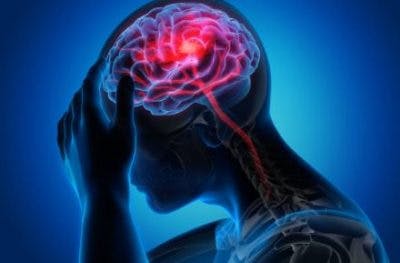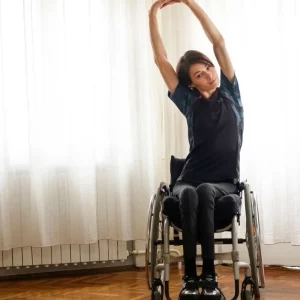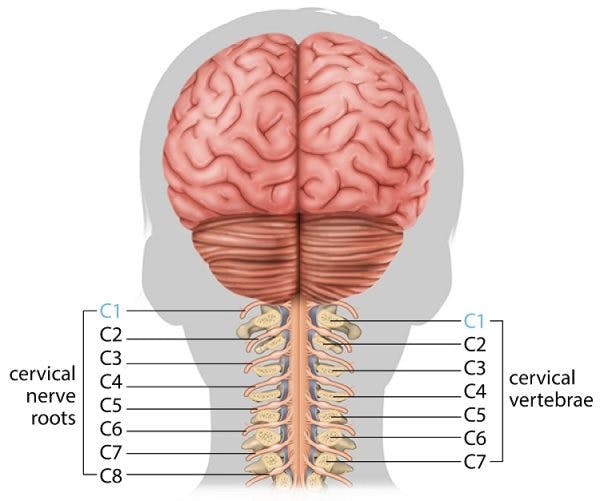While a spinal cord injury is not directly associated with cognitive impairments, complications of SCI can affect cognitive functions like memory, problem-solving, and focus. Fortunately, these skills can often be relearned and improved by identifying their underlying causes and appropriately managing them.
To help you understand the cognitive effects of spinal cord injury, this article will cover the cognitive effects of spinal cord injury, different factors that may impair cognitive functions, and how to treat cognitive impairment following an SCI.
Jump to a section:
What are the Cognitive Effects of Spinal Cord Injury?
Factors That Can Impair Cognitive Functions After Spinal Cord Injury
How to Treat Cognitive Impairments After Spinal Cord Injury
Understanding Spinal Cord Injury and Cognitive Impairments: Key Points
What are the Cognitive Effects of Spinal Cord Injury?
Cognitive functions such as attention, memory, decision making, and problem-solving are regulated by the brain, not the spinal cord. Rather, the spinal cord is the communication pathway that transmits motor and sensory signals between the brain, peripheral nerves, and muscles. Therefore, a spinal cord injury directly affects movement and sensation but has no direct impact on cognition.
However, studies on cognitive health after spinal cord injury indicate that up to 64% of individuals have some form of cognitive impairment. It’s also suggested that individuals with spinal cord injuries are about 13x more likely to experience cognitive impairments than able-bodied individuals.
While a spinal cord injury will not directly cause cognitive impairments, its secondary complications can influence your ability to focus and think clearly. The following section will discuss which secondary complications of SCI may affect cognition.
Factors That Can Impair Cognitive Functions After Spinal Cord Injury
Various outcomes of a spinal cord injury can contribute to cognitive impairments. Below, we’ll discuss how secondary effects of SCI can influence cognitive functions.
1. Emotional Distress

Adjusting to life after a spinal cord injury can be challenging and place extra pressure on an individual’s mental health. Studies show that SCI survivors are more prone to develop psychological problems such as depression, anxiety, and post-traumatic stress disorder than the general population. This does not mean that every SCI survivor will struggle with their mental health, but it’s something to be aware of.
The cognitive implications of mental distress can include:
- negative thinking
- inability to focus
- lack of interest
- poor judgment
- impaired memory
2. Pain
One of the most common secondary effects of spinal cord injury is pain. Being in pain long-term can impact your ability to listen, think clearly, and feel centered. As a result, it can affect your ability to pay attention, make rational decisions, and remember information.
3. Sleep Problems
Many people with spinal cord injuries experience difficulties falling asleep and staying asleep through the night.
For example, individuals with higher-level SCIs may experience breathing problems due to impaired motor control over their respiratory muscles. As a result, they may experience sleep apnea, which is a condition characterized by unstable breathing during sleep. Individuals with sleep apnea often wake up multiple times throughout the night. Pain and psychological distress, as mentioned above, can also result in difficulties with sleep. Insufficient sleep can disrupt cognitive functions such as alertness, memory, and concentration during the day.
4. Medications
The management of spinal cord injury and its secondary complications may involve taking various medications. However, adverse side effects are common and may affect cognitive functions. For example, individuals may feel sedated or have memory impairments.
5. Alcohol and Substance Abuse
While turning to alcohol or other substances may provide temporary comfort, they can also impair cognitive functions long-term. Heavy alcohol consumption can damage the ends of neurons, which can impair communication between brain cells.
Additionally, this study found that the size of your hippocampus (the part of the brain responsible for memory and learning) was related to the amount of alcohol people consumed. The more people drank, the more likely the hippocampus was to shrink over time.
6. Poor Cardiovascular Health
Many people with spinal cord injury experience irregular blood pressure due to physical inactivity and autonomic dysreflexia. Poor cardiovascular health can restrict the amount of blood that circulates throughout your body.
Blood is rich in oxygen and nutrients that fuel cellular activity and keep our bodies and minds in tip-top shape. Lack of blood flow to the brain can cause brain fog and harm cognitive performance.
7. Age
Whether you have a spinal cord injury or not, increasing age is correlated to decreasing cognition. However, it’s suggested that individuals with spinal cord injuries may experience accelerated aging due to the strain their sensorimotor impairments place on their minds and bodies.
The body of an individual with a spinal cord injury (especially with a higher level SCI) must work much harder than an able-bodied person to perform day-to-day tasks, which results in increased levels of fatigue. Fatigue is correlated to a quicker rate of aging and subsequent likelihood of cognitive decline.
8. Co-Occurring TBI

Sometimes, incidents that cause spinal cord injuries can also cause traumatic brain injuries (TBI). In fact, it’s suggested that up to 59% of individuals with a traumatic SCI also experience TBI.
For example, if you get into a car accident, hyperextension of the neck can cause spinal cord injury, and hitting your head on the window can cause TBI.
Because TBI directly affects the brain, a co-occurring TBI can significantly affect cognitive functions after spinal cord injury.
9. Increased Sedentary Behaviors and Social Isolation
Due to the physical effects of spinal cord injury, individuals are more likely to be less active and may also experience social isolation. A spinal cord injury may change individuals’ work, social lives, and day-to-day activities, resulting in less physical activity and social engagement. While staying physically and socially active generally helps to boost cognitive functions, experiencing physical and social inactivity may result in cognitive decline.
Now that you understand the various ways cognition can be affected after spinal cord injury, the following sections will discuss how to improve it.
How to Treat Cognitive Impairments After Spinal Cord Injury
After a spinal cord injury, individuals undergo extensive rehabilitation that involves learning new ways to perform everyday tasks or strengthening weakened functions. However, if an individual also experiences cognitive impairments, they may struggle to focus, remember, or stay motivated during their rehabilitative therapies. Therefore, it’s essential to also prioritize treatment of impaired cognitive functions in order to improve overall recovery and quality of life after SCI.
Because cognitive functions are not directly affected by spinal cord injury, treatment generally involves treating the underlying cause such as pain, sleep deprivation, or emotional distress. By working with a diverse team of medical professionals, individuals can identify what is causing their specific cognitive impairments and properly manage them.
If cognitive impairments are caused by co-occurring TBI, treatment will focus on promoting the central nervous system’s ability to rewire itself, neuroplasticity. Through highly repetitive and task-specific practice of the exact skills they wish to improve, individuals may be able to relearn and improve functions affected by brain damage.
Cognitive-behavioral therapy is a management intervention that utilizes neuroplasticity to improve cognitive functions after spinal cord injury. It involves working with a psychotherapist to identify situations in your everyday life that may be affected by cognitive impairments and learning more effective ways to manage them.
To get even more practice, it’s an excellent idea to download a cognitive therapy app like the CT Speech and Cognitive Therapy App onto your phone or tablet. This will provide you with access to over 100,000 cognitive training exercises that will help develop cognitive functions after SCI.
Understanding Spinal Cord Injury and Cognitive Impairments: Key Points
While a spinal cord injury will not directly affect cognitive functions, many secondary complications of SCI such as pain, depression, or sleep problems can. Fortunately, cognitive skills can often be improved by treating their underlying causes.
Additionally, it is relatively common for individuals to experience a co-occurring traumatic brain injury, which can directly affect cognition. Treatment will then involve highly repetitive, task-specific training to promote neuroplasticity.
We hope this article helped you better understand how a spinal cord injury may affect cognitive functioning, as well as the most effective interventions to overcome cognitive impairments.
Featured image: iStock/michaelpuche











